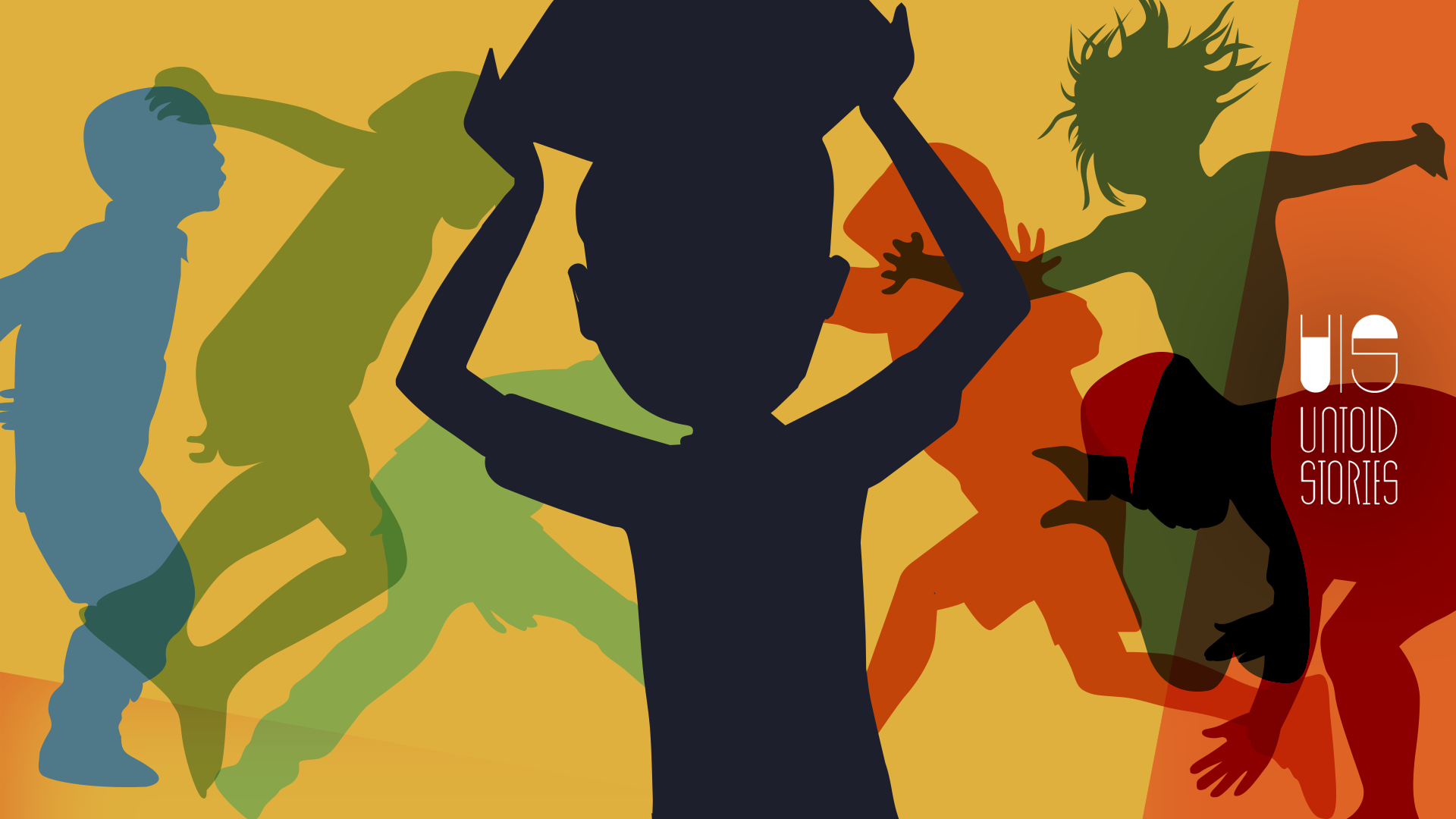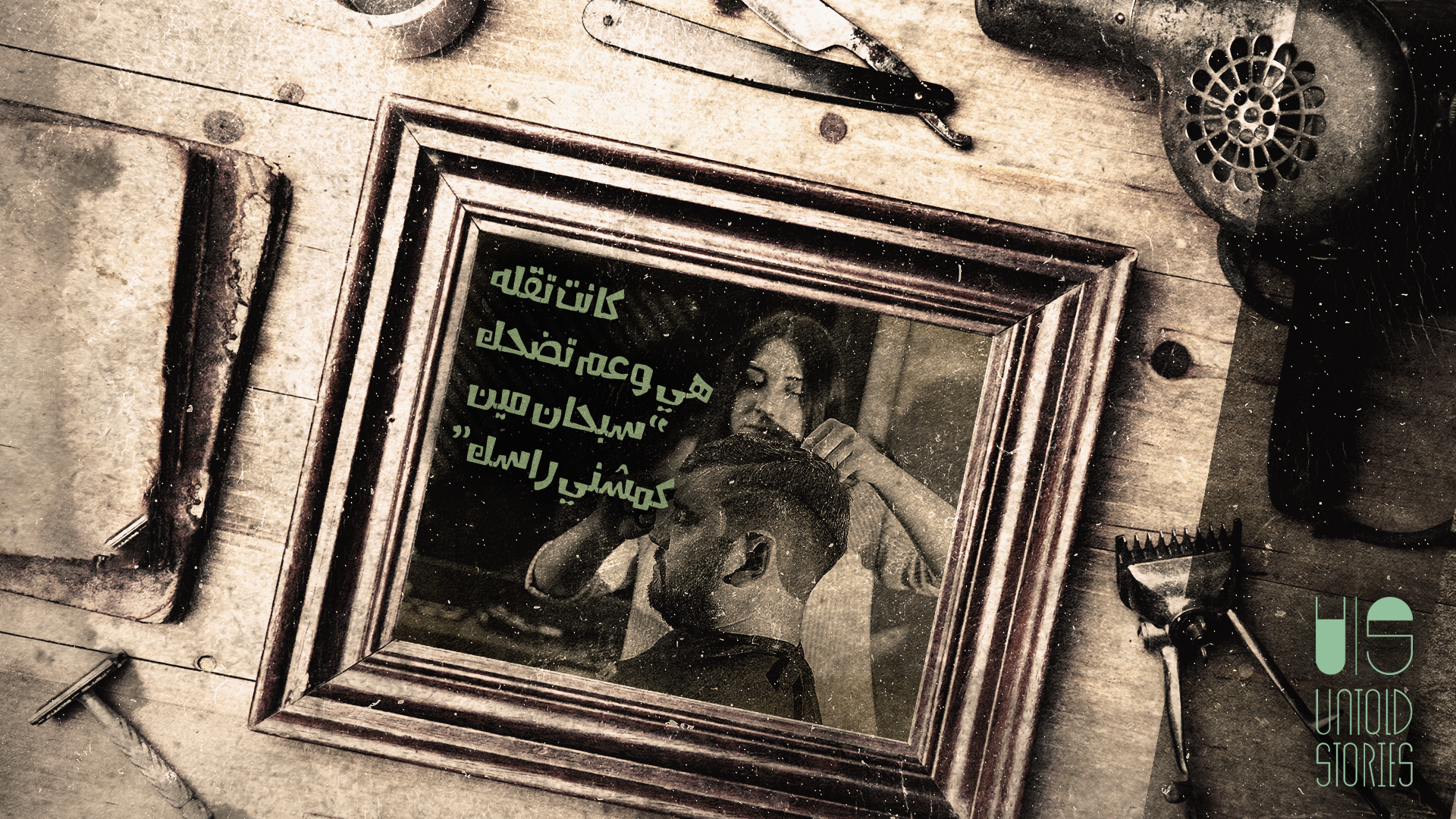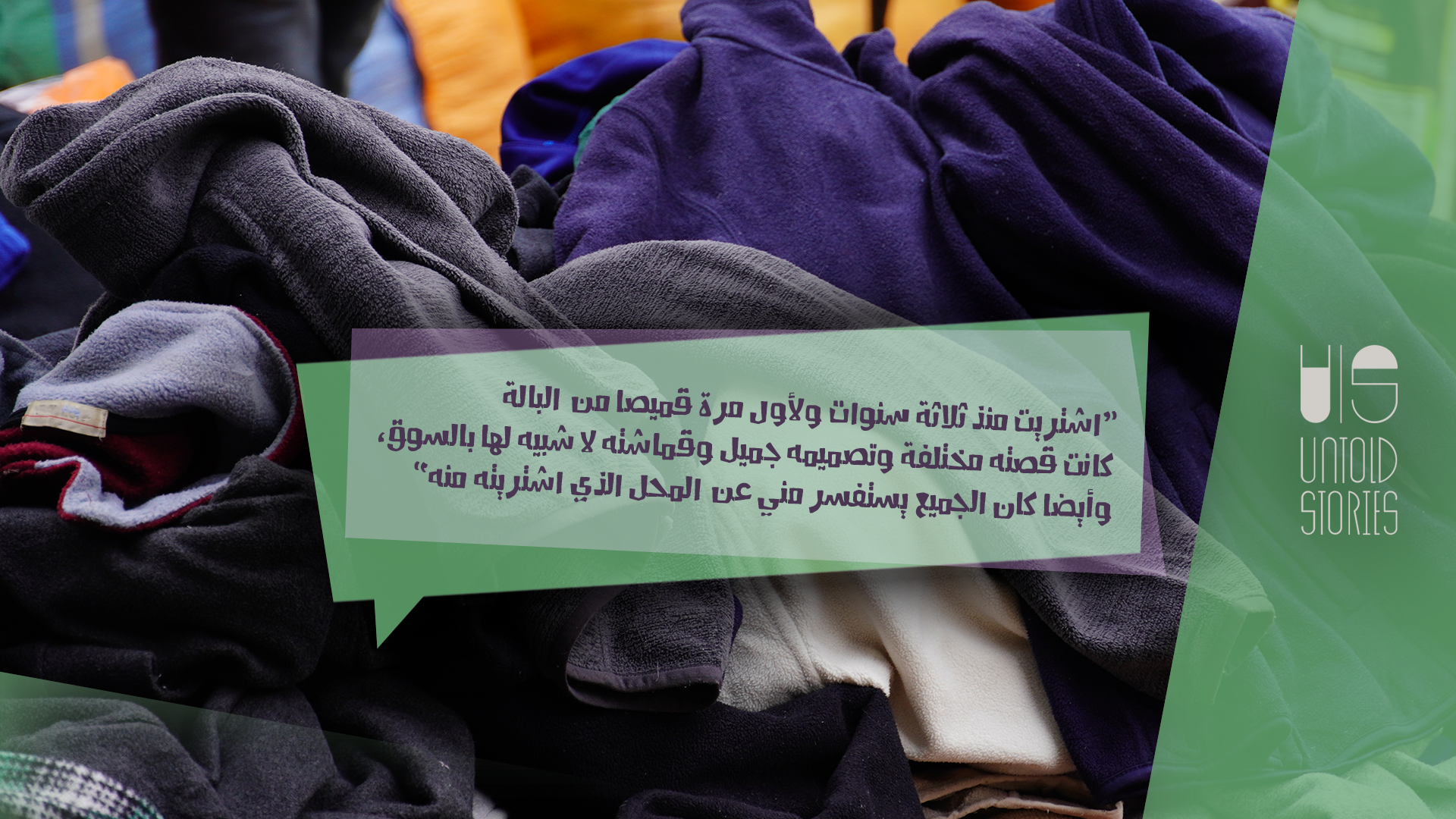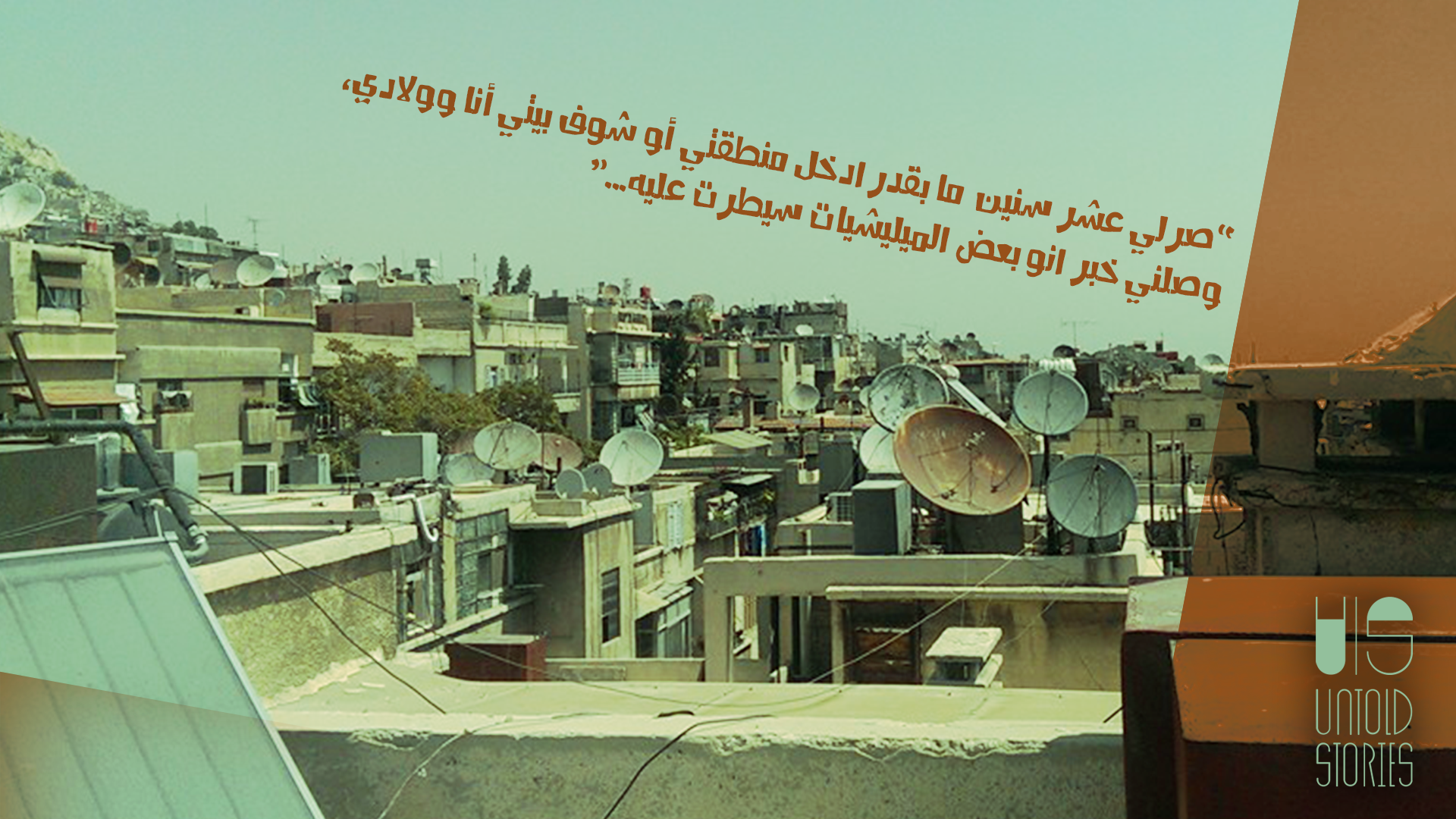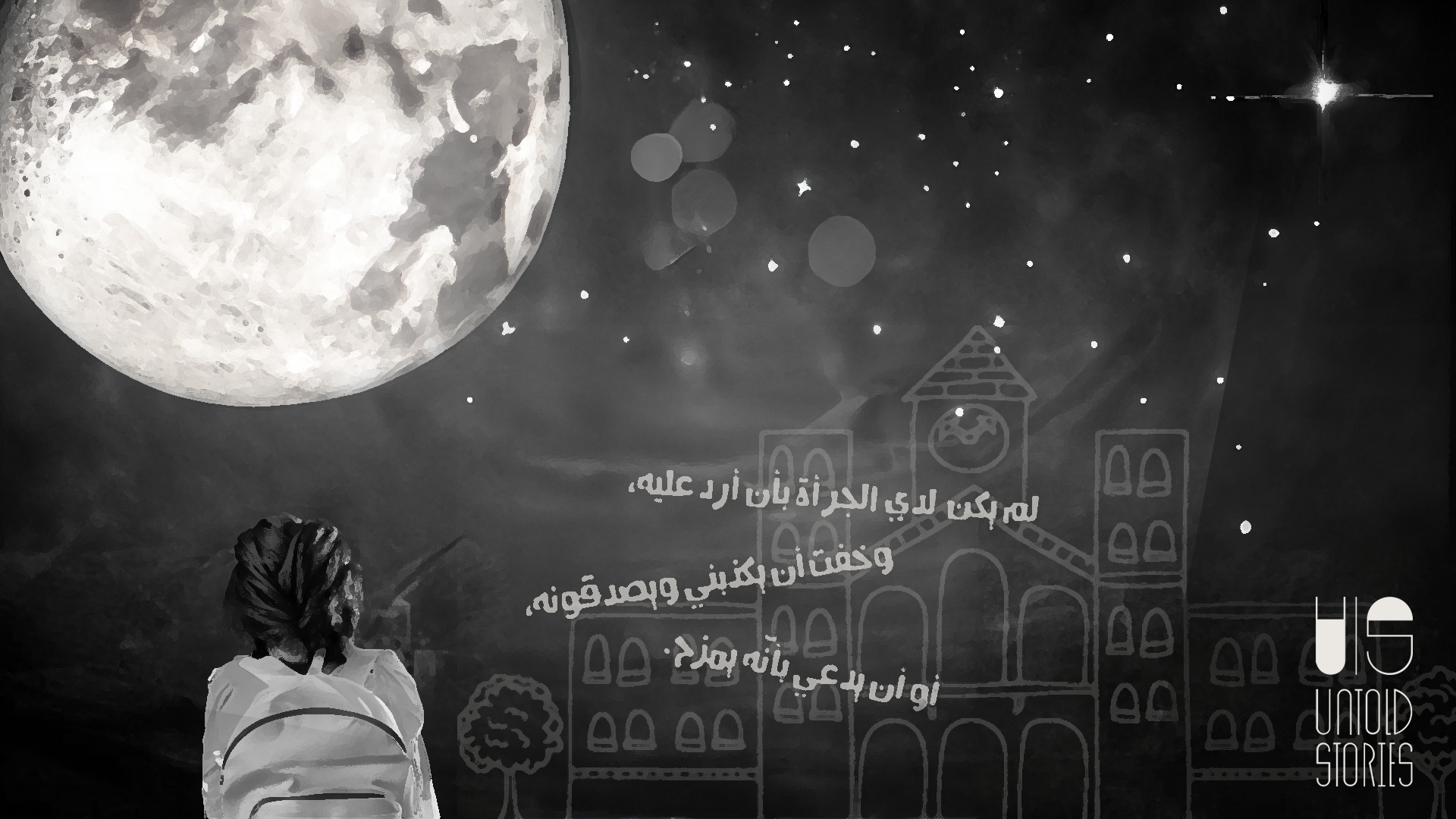“This article was produced within the project «Empowering the Next Generation of Syrian Women Journalists» in partnership between the «Syrian Female Journalists Network» and «UntoldStories». This article was produced under the supervision of journalist Zeina Bitar.”
Siham's phone (a pseudonym) incessantly rang for two hours. Siham resides in one of the care facilities in southern Turkey. She revealed that these persistent calls were from the director of the facility, pressuring her “urgently and persistently” to consider marrying an “elderly Gulf man who would soon visit them.”
Siham According to Siham, such incidents have been recurring over the years, where marriages are arranged during the brief stays of these men who tour the area. Interestingly, this particular man is known to be a supporter or donor to the facility where Siham resides.
that such stories have been repeated frequently over the past years, where marriages are taking place when this man stays here for a short period and tours the area. It's not coincidental that this man is one of the supporters or donors to the facility where Siham resides.
Siham opted not to divulge any personal details about herself or the facility, including its name or location, and our investigation was hindered. Previously, a resident who spoke to the media about the facility was expelled along with her children, instilling fear in others and preventing them from speaking out about their experiences in care facilities.
What are care facilities?
In recent years, following a series of disasters in Syria, millions of Syrians have been compelled to migrate and seek refuge elsewhere. With many families losing their primary breadwinners, housing units have been established to accommodate women who have lost their husbands along with their children. These units are commonly referred to as "care facilities" or "widow camps."
Care facilities have primarily spread in northwest Syria, with some also present in neighboring countries (Turkey, Lebanon, Jordan). Statistics conducted by the GOV AoR team, with support from the Child Protection team in Gaziantep, revealed the existence of at least fifty widow camps in northwest Syria, while there are no accurate statistics on the number of similar camps in neighboring countries or the number of beneficiaries and residents therein.
According to statistics, the camps in northwest Syria host approximately 20,000 women and children. Among them are 6,312 women, 7,027 girls, and 6,012 boys, totaling 19,351 women and children.
These sites are typically managed by civil authorities and are usually funded by non-traditional donors, including charitable organizations and donors from Gulf countries. With the decrease in funding from these donors over the past few years, greater space has been opened up for humanitarian interventions.
Most of these camps impose restrictions on the freedom of movement for the resident women and children.
Alternative home?
According to Ruba Mansour, the director of the Al-Ayyam office in the Quran Generation Foundation operating in northwest Syria, these facilities aim to provide care for orphaned children and their mothers while offering an alternative to the lost home. They also offer educational and recreational activities. The endowment is designated for orphan families, with “each family residing in a separate house to avoid separating the orphans from their families and causing them further harm.”
Mansour emphasizes that “the orphans lead normal lives in these facilities, and serious efforts are made to integrate them into society. They attend school with their peers, progress to university, and participate in various educational, recreational, and physical activities. The resident mothers also lead their lives naturally, with some working and others continuing their studies while wearing uniforms.”
Meanwhile, Mohammed Arif Al-Hamoud, the director and owner of the Mohammed Al-Dahishi Orphanage in Hatay, Turkey, states that the orphanage was established following the earthquake that struck Turkey and Syria in February 2023. Its goal is to provide accommodation for orphans and their families, primarily focusing on caring for the orphans.
According to Al-Hamoud, "The selection of families is done by a specialized committee, taking into account the ages of male children to avoid separating the child from his mother."
He rejects the idea of separating children from their mothers because it inevitably leads to the orphan's future being lost and negatively impacts the rest of his life. He prefers the whole family to be in one place, "even if the orphan and his mother have to work to manage their lives."
However!
These statements did not align with several places we surveyed or with what we heard during interviews. Many care facilities have imposed stringent conditions on accepting women and children.
An administrator in one of the care facilities, identified as S.A, who refused to disclose his full name, explained the admission conditions: "We have implemented many rules and conditions in the facility for accepting beneficiaries with their children. Among the most important conditions are prohibiting them from working outside the facility, not allowing any outsiders, and having set hours for leaving during the day. Sometimes we organize professional courses as long as they are inside the facility and under our supervision. It is important not to tarnish the reputation of the facility or the reputation of the resident women."
The administrator continues, stating that if a woman agrees to these conditions, she will receive free accommodation, including meals. Similar conditions were applied to several care facilities in Syria or neighboring countries we surveyed.
The founder and owner of Al-Wala' Orphanage in Hatay, Turkey, Sultan Qaddour, explained the admission conditions for women in Al-Wala' Orphanage. It is required that "the woman is widowed or single and does not have any shelter. She must agree to all residence rules, including not allowing her to work outside the residence at all." Additionally, the orphanage requires that males be separated from their mothers when they reach the age of twelve. If the mother wishes to stay in the orphanage after her son reaches that age, she must find alternative accommodation for the child outside the orphanage.
According to Qaddour, more than one family resides in one apartment, and therefore, males are separated from housing to provide greater comfort for the resident families, "and to avoid problems, but mothers remain in contact with their children, in addition to regular visits and follow-up by the management."
Qaddour says that after leaving the orphanage, children stay with their relatives such as grandparents or uncles, while others choose to travel to other states for work or study purposes.
Residence or Prison?
Obtaining statements from residents in these facilities proved challenging, with the common response being clear: "We will be expelled if we speak."
However, we managed to meet K.Z., a resident in one of these facilities. She shared that residents in widow camps "face a lot of pressure and restrictions in several matters, including excessive scrutiny of their entry and exit from the camp. This can only happen with prior permission and within specified hours set by the camp manager. Otherwise, they will be threatened with expulsion and treated poorly. In addition, male children are separated from their mothers when they reach a certain age (between 11 and 13)."
We also spoke with Um Ahmed, a former resident in one of the care facilities in Hatay, Turkey. Um Ahmed revealed that she resided in a care home with her children for years and left several months ago "after feeling that my life had become like a big prison. My movements were restricted and monitored. My entry and exit to and from the home had to be with prior permission, in addition to feeling that my son (14 years old) was unwelcome. Unfortunately, the assistance I was receiving stopped when I left."
Um Ahmed withdrew her son from school and enrolled him in manual labor in a workshop, while she works on a sewing machine at home to secure the necessities of life.
According to Najm Al-Najm, a psychologist working with the UOSSM organization in Hatay, Turkey, "Preventing mothers in orphanages from working and living a normal life not only causes them to feel financially helpless and meet the basic necessities of life, but also leads to their inability to make decisions and lack of independence, in addition to restricting their freedom, constant threat, fear of the future and the unknown, low self-esteem, and lack of self-confidence." Al-Najm further noted that all these issues can lead to various psychological pressures and disorders such as anxiety, depression, insomnia, obsessive-compulsive disorder, which are reflected in social life in the form of social withdrawal and a negative view of society, and in family life through practicing wrong parenting methods.
"What is happening is a clear violation of women's rights by all standards," says women's rights activist Lubna Al-Qanawati, adding that "residing in these facilities is akin to living in prison," and that these rules should be reconsidered or others developed based on the needs of women and supporting them in a way that preserves their dignity and the dignity of their children and allows them to develop themselves.
Children Without Mothers
In one of the care homes in northwest Syria, women live alone under harsh conditions, and any child over the age of twelve is separated from their family. According to witnesses we met, children are transferred to another camp designated for orphaned children only, or they are recruited into military factions present in Aleppo and Idlib. In other cases, children have nothing but a tent in one of the camps spread across the region.
Some care facilities receive funding from a Gulf entity (we couldn't specify precisely), unofficially stipulating that no male child remains after the age of twelve.
We managed to interview B.S., a member of an armed military faction active in northwest Syria. He confirmed the presence of fifteen-year-old children in his faction. According to him, these children applied to join the faction to obtain shelter and a salary. B.S. says that initially, children are assigned easy tasks like preparing tea, guarding, or daily service and attending some training courses, then they join the ranks of fighters after being prepared to carry weapons.
Women's rights activist Lubna Al-Qanawati says that these care facilities, in exchange for providing housing and food, "create several frightening phenomena and behaviors, such as encouraging child labor, exploiting them sexually, and recruiting them."
Mothers' Struggle
Due to mothers' refusal to comply with the supporter's conditions regarding separating their children from them, and after collective objection to these rules, the Ministry of Development in Idlib, which is directly responsible for managing the camps in the region, intervened. They decided to integrate the widow camps into regular camps, where all family members are allowed to reside regardless of their ages.
According to a confidential source (who refused to disclose their name or workplace) in northwest Syria, the Ministry of Development in Idlib merged orphan and widow camps with family camps because, according to the conditions of the supporters and funders, children are separated from their families. Mothers are left with two choices: "Either sacrifice free accommodation and services provided in the camp to stay with her son, or sacrifice her son's future to secure the lives of the rest of the family."
One of the resident women in one of the "informal family camps," which was previously a camp for widows only, says that the recent decision to merge camps that were designated for widows with family camps is "a correct decision to save the future of the children."
However, according to our observations, this decision did not affect the existence of many informal camps that adopt a policy of separating male children from their mothers. These camps spread informally, making it difficult for us to access accurate official statistics about their numbers and the number of beneficiaries, which we estimate to be in the thousands.



